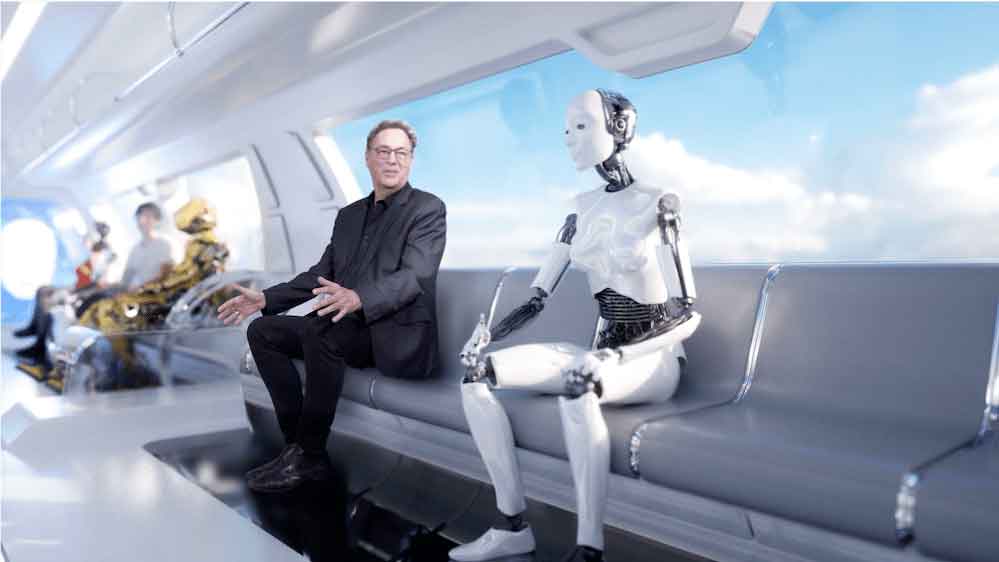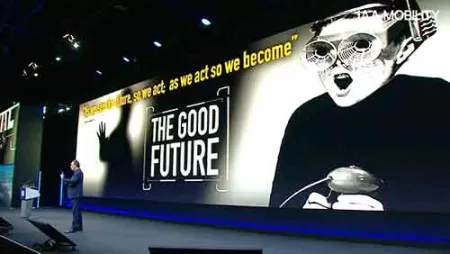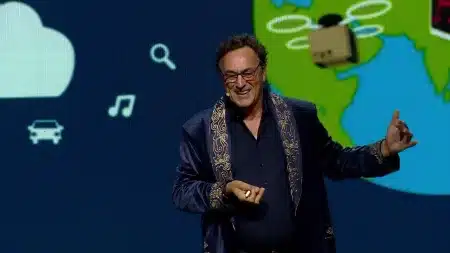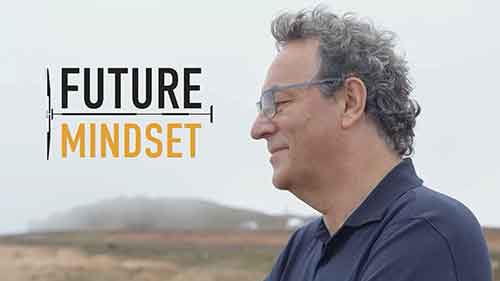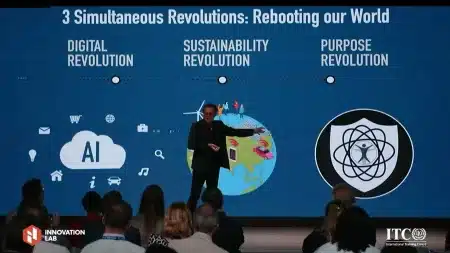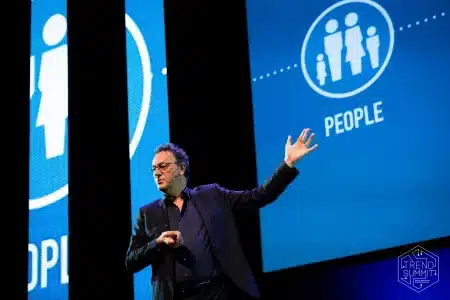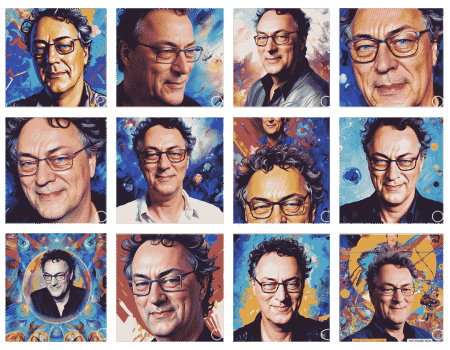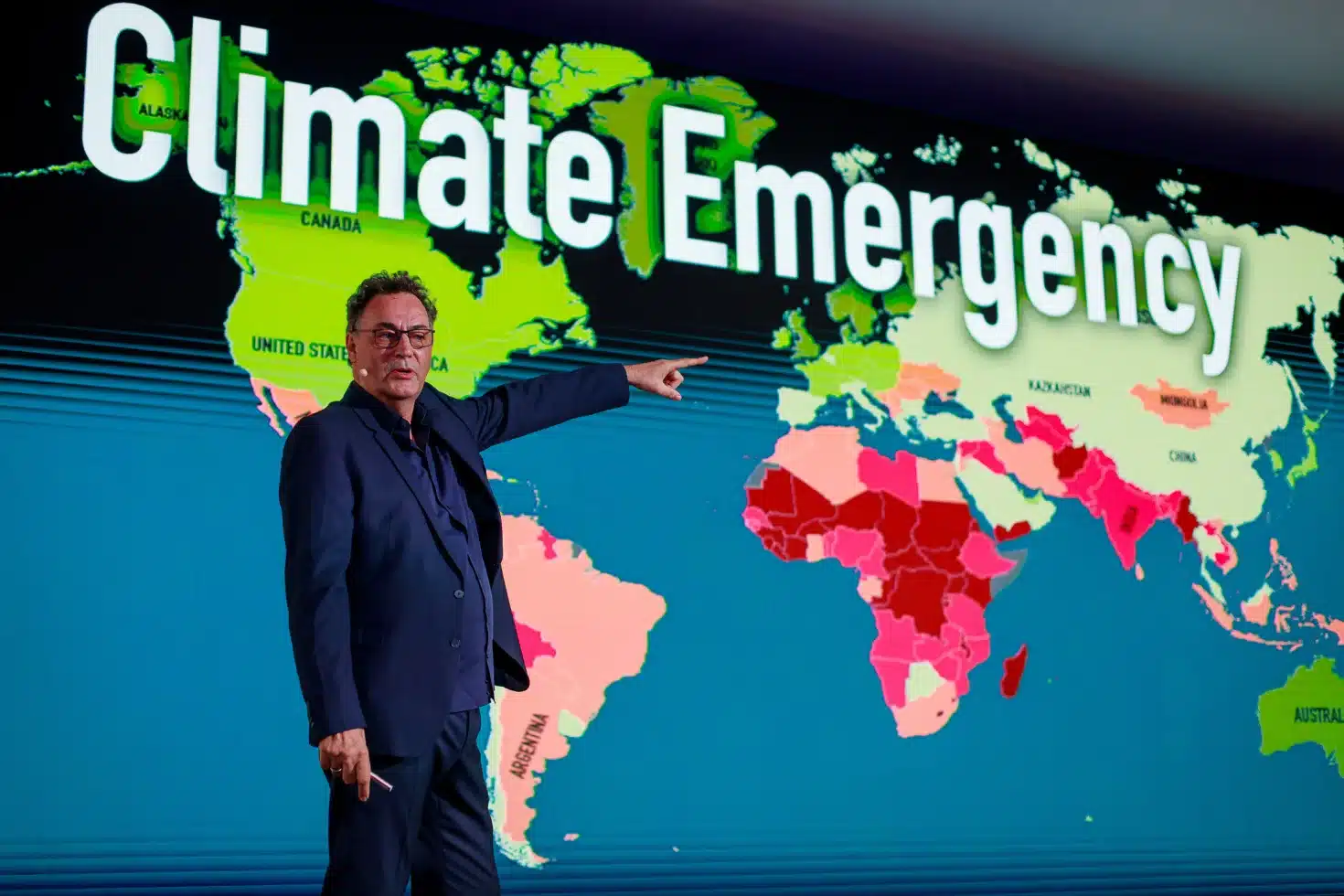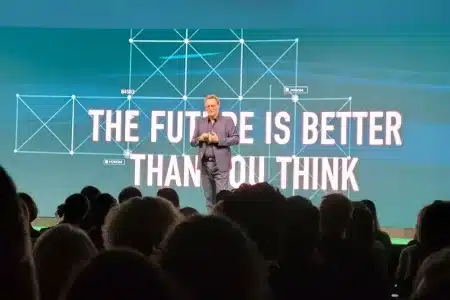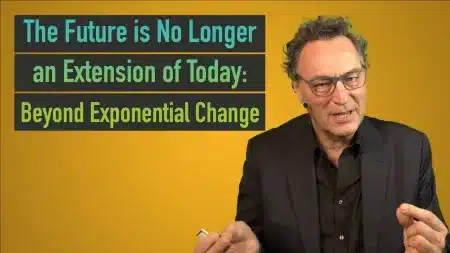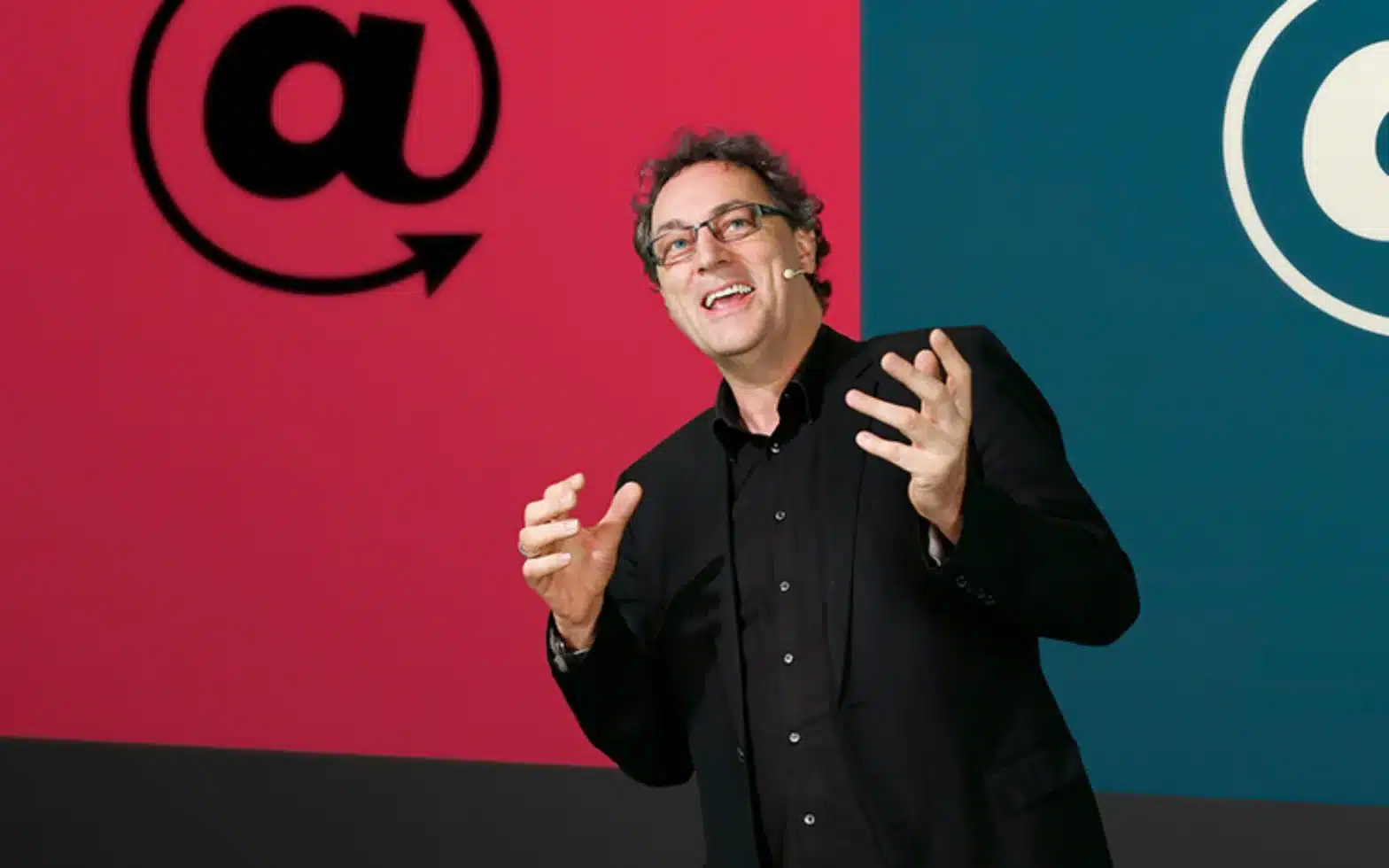THE GOOD FUTURE
People • Purpose • Planet • Prosperity
Nice to see you here!
I'm a Futurist and a Humanist, and I work as a Keynote Speaker, Advisor, Workshop-Leader and Filmmaker. I have written a few books, as well:).
My credo is “People, Planet, Purpose & Prosperity” and I strive to share foresight and ‘practical wisdom‘ with my audiences. Every keynote is customised, and unique.
In my keynotes, I focus on creating powerful and unique experiences, delivering penny-drop moments and actionable narratives.
I am an advocate of The Good Future: I take an optimistic, hopeful, and practical view of the future. We may not have fewer problems, but we have much-increased capacity!
The Good Future
yes, we can!
Fueled by deep geopolitical shifts, complex conflicts, regional wars, accelerating climate emergency, the mind-boggling pace of technological transformation and the confusion that comes with the meteoric rise of AI, the world is changing faster than ever. What used to be unthinkable or impossible, is quickly becoming the new normal. Science fiction is becoming science fact. The excitement is real, but worries about the future are at an all-time high. So how can we rebrand the future as ‘good'? How can it become a reality? How can humanity go beyond the amazing science and the cool tools towards more TELOS? I believe that The Good Future is real and attainable – and I'm ready to explore it with you!
I often take a meta-level view of the next 10 years, covering many sectors such as society, policy, business, technology (in particular, artificial intelligence), climate change + green futures, the future of jobs, work and education, learning, and human resources. For some good examples, watch these videos: The Next 10 Years, and The Future of AI and Humanity.
My keynotes can be held virtually, using my unique and critically acclaimed keynote television approach. All talks are customised for every client and their audience.
Please have a look at my essential topics below, or fish for my best video quotes using my new video search engine. Try my new chatbot at TheGerd.ai, or just reach out to me directly to discuss a possible collaboration.
ARTIFICIAL INTELLIGENCE AND THE FUTURE OF HUMANITY
THE GOOD FUTURE – WHY IT'S REAL, AND HOW TO DESIGN IT
Why and how People-Planet-Purpose and Prosperity is the key to the Good Future
Fueled by recent geopolitical conflicts, the urgency to address the accelerating climate emergency, and the mounting societal challenges of technological hyper-transformation (in particular, AI), the world continues to change at a mind-boggling pace, and confusion reigns.
Once unthinkable climate-emergency measures such as new carbon taxes (for aviation or for eating meat) are increasingly likely, concerned citizens (especially the GenY) around the world will push for real change. CEOs are touting their commitments to stakeholder values, but many doubt that corporate leadership toward a better future is sincere enough; resulting in a political power shift that benefits autocratic regimes.
What kind of future do we want? Is our current economic logic even suitable for the future? Will the traditional model of ‘free and open markets' deliver solutions for these complex global issues? Is this approach fit for the future?
I believe that we must look beyond socialism, capitalism, and/or liberalism to design a new economic logic and reboot our stock markets as we transition from the suicidal single bottom line of GDP growth to what I call the 4Ps: People, Planet, Purpose, and Prosperity. This keynote will dive into my latest learnings on The Good Future, and help show the way forward.
Watch my Good Future films and videos here.
THE 10 ESSENTIAL FACTS ABOUT THE FUTURE
The most important future foresight, delivered straight-up yet with optimism and inspiration
In these confusing times, where AI-infused media is constantly spreading disinformation and fabricating fake realities, it is essential to learn how to see through the hype and unmask false promises. In this talk, I share my continuously updated list of ‘facts & truths' about the future, such as:
- Science and technology alone will not save us – we need the tools AND we need the TELOS!
- Understanding the future is both an art and a science. Imagination & intuition beats knowledge.
- AI tools are fundamentally labour-replacing, and we must prepare accordingly.
- Transcending our human limitations by technological means will not make us fundamentally happier. Transhumanism is a dead end.
- Until we change our reasons (the purpose), we won’t change our actions (and the resulting problems): We need to rethink our economic logic.
- A technology-centric, reductionist approach to dealing with human realities will inevitably fail.
- When it's about ‘intelligent digital entities', we should focus on competence (IA), not on consciousness (AGI)
GERD'S KEY FORESIGHTS: THE NEXT 10 YEARS
What to understand about the future, today – how to be better prepared
- Exponential technological change: It could be heaven, or it could be hell. What you should expect regarding regulation and policies, and why Digital Ethics is existential.
- IA (intelligent assistance) versus AI, versus HI (human intelligence). Why using AI is really all about competence, not consciousness, and why AGI might pose a serious conundrum.
- Virtuality: AR/MR/VR, the Metaverse and Apple's Vision Pro: opportunity versus hype, versus feasibility
- A new capitalism? Examining the coming shift beyond GDP / Profit & Growth towards the 4Ps: People Planet Purpose, and Prosperity.
- The Sustainability Revolution: Big Blue/Tech + Big Green = Big Future (Green is the new Digital).
- The coming human renaissance: rebooting education, training, learning, and HR. Life with/after automation and AI. Why humans will still matter!
- Don't mistake a clear view for a short distance. A reality check on ‘big promises' such as GenerativeAI, self-driving, i.e., autonomous vehicles, NLP/ computer language comprehension etc.
- From efficiency and optimisation, to agility, resilience, and creativity. The future of work and skills. Our ultimate job is to be human (i.e., not to be like a machine).
- The coming convergence of biology and technology, rebooting healthcare, pharma and life sciences.
This talk is constantly updated to reflect the latest developments
THE 3 REVOLUTIONS: ARE YOU READY?
The next 10 years will bring more change than the previous 100 years.
We are warp-driving into a future, characterised by the 3 Revolutions: The Digital Revolution (including AI), the Green Revolution (sustainability & decarbonisation), and the Purpose Revolution (a new economic logic), and ‘beyond GDP', based on what I call People Planet Purpose and Prosperity, the 4Ps). Big Blue, Big Green, Big Purple (video)!
If indeed “the future belongs to those who can hear it coming” we would do well to develop a future mindset, question our assumptions about what's possible, and boost our ability to better respond to the framework changes (not just to the individual pictures).
The future is no longer about tomorrow – the future is already here; we are just not paying enough attention yet! By 2030, we will have approx. 9 billion people connected at high speeds and very low cost. Virtual/augmented reality will be as normal as WhatsApp. Conversational AI and natural interfaces will be how we interact with computers, and the rapid convergence of online, virtual and real-life physical worlds will upend how we do everything, from working to travelling to shopping to healthcare to banking.
The power of exponential, general-purpose technologies such as AI and VR will become almost limitless – which is why we must start focusing NOW on remaining human. Ethics and values will become the new product (reminder: green is already the new digital).
GREEN IS THE NEW DIGITAL – AND SUSTAINABLE WILL BE THE NEW PROFITABLE.
Why and how the decarbonisation of our economies is the biggest opportunity in this coming decade
Digital transformation is just business as usual. The next massive topic is Big Green: the decarbonisation of our economies and the gradually-then-suddenly departure from the fossil fuel era. 2024 will be when the gloves are coming off.
Get ready: wide-ranging new carbon taxes are inevitable (airlines, meat, personal carbon budgets etc.), and fossil fuel subsidies will turn into nature-positive investments. During the pandemic, we learned that being prepared for emergencies is essential – and that yes, we can indeed compromise and collaborate (if we must).
I set forth that the circular economy will be the only economy by 2030, and that ‘sustainable' is becoming the new ‘profitable' in the next 5 years (have a look at the stakeholder economy debates).
Any company that does not understand how this global move towards rapid decarbonisation will impact every segment of their business (from R&D to supply chain, from production to distribution, from marketing to branding), will wither and fade away. Those who don't understand what knowledge, skills, and mindset means, will quickly become dispensable.
In this talk, I explain why this tectonic shift is happening now, what it means, and how to get behind it and prosper in this fork-in-the-road decade which is coming up. Visit my new Decarbonisation / Green Hub. Watch this short film.
THRIVING IN EXPONENTIAL TRANSFORMATION AND PERMACHANGE
How Organisations Can Define and Create Their Preferred Future
While a rising tide lifts all boats, one-sided or blind disruption can capsize any organisation. To create enduring, dynamic organisations which are built to last in today’s era of accelerating exponential technology, the most important thing is foresight and preparedness.
Today, companies and organisations, and their people, find themselves increasingly forced to pivot and reinvent themselves or face sudden disintermediation and irrelevance. From music to the automotive industry, from big oil to big box retail and everything in between, the pace of change is only poised to accelerate further. The 3 Revolutions, the 10 Game-Changers and other Megashifts sweep across industry and society, altering every aspect of our daily lives.
While organisations, unprepared for the waves of change to come will not survive, those who prepare themselves, can and will take advantage of the enormous opportunities created amidst the chaos – from IoT and AI to robotics and new human-machine interfaces (such as voice-control and intelligent bots).
THE FUTURE OF WORK, JOBS, EDUCATION & TRAINING
Awesome humans on-top of amazing technology
All too often, scientific breakthroughs, industry hype cycles, the latest technological achievements, or economic growth targets dominate discussions about our future. Yet, as the world is rapidly going digital, and becoming increasingly virtual, I believe it is our humanity that needs the most attention. It will be our humanness which will make all the difference. The thoroughly deflated hype about the Metaverse is a good example: sometimes technology promises to give us everything we've ever dreamt of but ends up giving us little of what we really need.
Computers will inevitably outpace humans in mere processing power, logic and efficiency, and the End of Routine is a certainty. Thus, the ticket to our future is to become more human, not less; not to compete with the machines but to use their increased competence to handle those tedious commodity tasks better and faster. I think machines, computers, and algorithms should have competence, not consciousness.
What will happen to humans when machines become truly intelligent? What about privacy, mystery or serendipity? What about emotions, intuition, imagination, and consciousness (what I call, in my last book, the androrithms)? In this talk, I outline the challenge as well as some solutions.
Reminder: The biggest danger today is not that machines will eliminate us, but that we may become too much like them.
WHY AND HOW THE FUTURE IS BETTER THAN WE THINK
10 Reasons to be Optimistic. 5 Strategies and 3 Actions
For decades, film and TV studios have flooded the public with visions of a dystopian future. It's no wonder that people fear AI and robots. Add the streaming platforms, social media, pandemics, (re)globalisation, automation and geopolitical upheaval to the mix, and the result is a widespread belief that the future is mostly bleak. Read more about that here.
The fact is: Our world is not irrevocably destined to become a dehumanized hellscape ruled by AI, or some other Black-Mirror-like nightmare. Our future certainly isn’t fixed – we create it with our (in)actions, every day. If you look at the correct data, you’ll find things often are better than ever before.
The world is improving at a rapid rate. Sure, the world’s progress in the past 30 years is not all peachy and amazing – especially when seeing it in context with the Corona crisis in 2020. Yet, we are well on the way to reducing extreme poverty and hunger and chiselling away at many of the other woes that have plagued humanity since the dawn of time; including diseases, crime, and war. Indeed, we have a lot of reasons to be optimistic about our progress. In the next decade, I think we will have most of the tools we need (science and technology). Now we must acquire the TELOS (will, purpose, and wisdom).
So what can you do, as an individual, an enterprise, or an organisation, to make sure your future will indeed be bright? How will you turn these challenges/opportunities into positive action? If we are (or to become) what we believe we can be, how do we change our beliefs and mindsets?
THE FUTURE-READY MINDSET
Character Traits, Personality, Skills, and Attitudes: Your Mindset Contains Your Future!
While there is no such thing as “knowing the future,” nothing is more important to your future success than your mindset, your intuition, your imagination, and your overall future readiness. Looking at the Future is not about prediction, it's about being better prepared. That's something we can learn and practice.
In this popular talk, Gerd explains and shows how to develop the future mindset, and how organisations can dramatically increase their future-readiness.
The next 10 years will bring more change than the previous 100 years: driven by the 3 revolutions (digital, sustainable, purpose) as well as by simultaneous technological leaps in sectors such as AI, Quantum Computing, Synthetic Biology, Nanotech and Genetic Engineering and others.
DIGITAL ETHICS AND THE FUTURE OF TECHNOLOGY
Our future could be heaven, or it could be hell – it’s our choice!
Science fiction is increasingly becoming science fact. Consider the dramatic technological advances in robotics, artificial intelligence, human genome manipulation, autonomous vehicles, and quantum computing. By 2030, the power of exponential technologies will become almost limitless!
The ethical and humane use of technology can no longer be an afterthought but instead, an existential challenge. If we define ethics as, “Knowing the difference between having the power to do something and doing the right thing”. Who do we want to make these critical decisions? Should it be the algorithms and profit incentives that determine our fate? Who will be mission control for humanity?
To paraphrase Apple's CEO Tim Cook, “Technology can do great things, but it does not want to do great things…it doesn't want anything”. In a world where technology will increasingly define every aspect of life, who do we want at the helm?
If we define ethics as, “Knowing the difference between having the right or the power to do something and doing the right thing”, who will decide what is right, and who will be “mission control for humanity”?
BOOKING INQUIRY MORE ON DIGITAL ETHICS HERE
ENGAGEMENT OPTIONS
VIRTUAL OR IN PERSON – LIVE or PRE-RECORDED
AVAILABLE ENGAGEMENT & PRESENTATION FORMATS
The cost of an engagement depends on many factors: event location, the degree of customisation required, the audience, location, venue size, preparation time, and the overall event context. We have an option for just about every budget:
- A virtual/online keynote with customised background visuals (20-60+ min), live via remote video or Pre-Recorded, depending on your schedule and requirements. Gerd often delivers high-definition recordings followed by live online Q&A sessions. Please inquire for further details.
- live-on-stage / On-location keynotes: a) with customised visuals (30–90 min) b) A speech without visuals or media c) Gerd's popular super-keynote format (requires extra-wide LED walls).
- A ‘Fireside-Chat with Futurist Gerd': no media, or presentation, only conversation-style, hosted by a suitable and experienced presenter in real life or virtually.
- A virtual panel or webinar participation (no speech, or presentation)
- Futurizing Seminars or Workshops
- Virtual Advisory Session with Futurist Gerd
VARIABLES THAT IMPACT GERD'S FEES:
- Do you desire a virtual presence, i.e., a remote talk from Gerd's studio in Zürich, using highly immersive virtual backgrounds, in Full HD (see this video) or a personal/real-life presence, at your event location?
- Does your event fit within Gerd's current core topics list (see above), with some basic customisations (lowest fee)?
- Do you require substantial customisation including deep domain or location-specific content (leading to more research and preparation costs)?
- Is this about an entirely new topic or subject, researched and designed for a specific occasion?
NOTE: Special rates are sometimes available for established NGOs and government organisations.
GERD'S FEES ARE BASED ON THESE VARIABLES:
- Do you desire a virtual presence, i.e., a remote talk from Gerd's studio in Zürich, using highly immersive virtual backgrounds, in full HD (see this video) or a personal/ real-life presence, at your event location?
- Does your event fit within Gerd's current core topics list (see above), with some basic customisations (lowest fee)?
- Do you require substantial customisation including deep domain or location-specific content (leading to more research and preparation costs)?
- Is this about an entirely new topic or subject, researched and designed for this specific occasion?
Advisory Sessions
Beyond keynotes and presentations, Gerd also offers customized, ‘futurizing’ advisory sessions, workshops, and seminars, as well as executive board and CXO future-coaching. Gerd is also a filmmaker and heads up all StoriesFromTheFuture.tv projects. He is available for participation in fire-side chats, talk shows, public debates and TV shows. Gerd's keynote presentations are in English or German.
